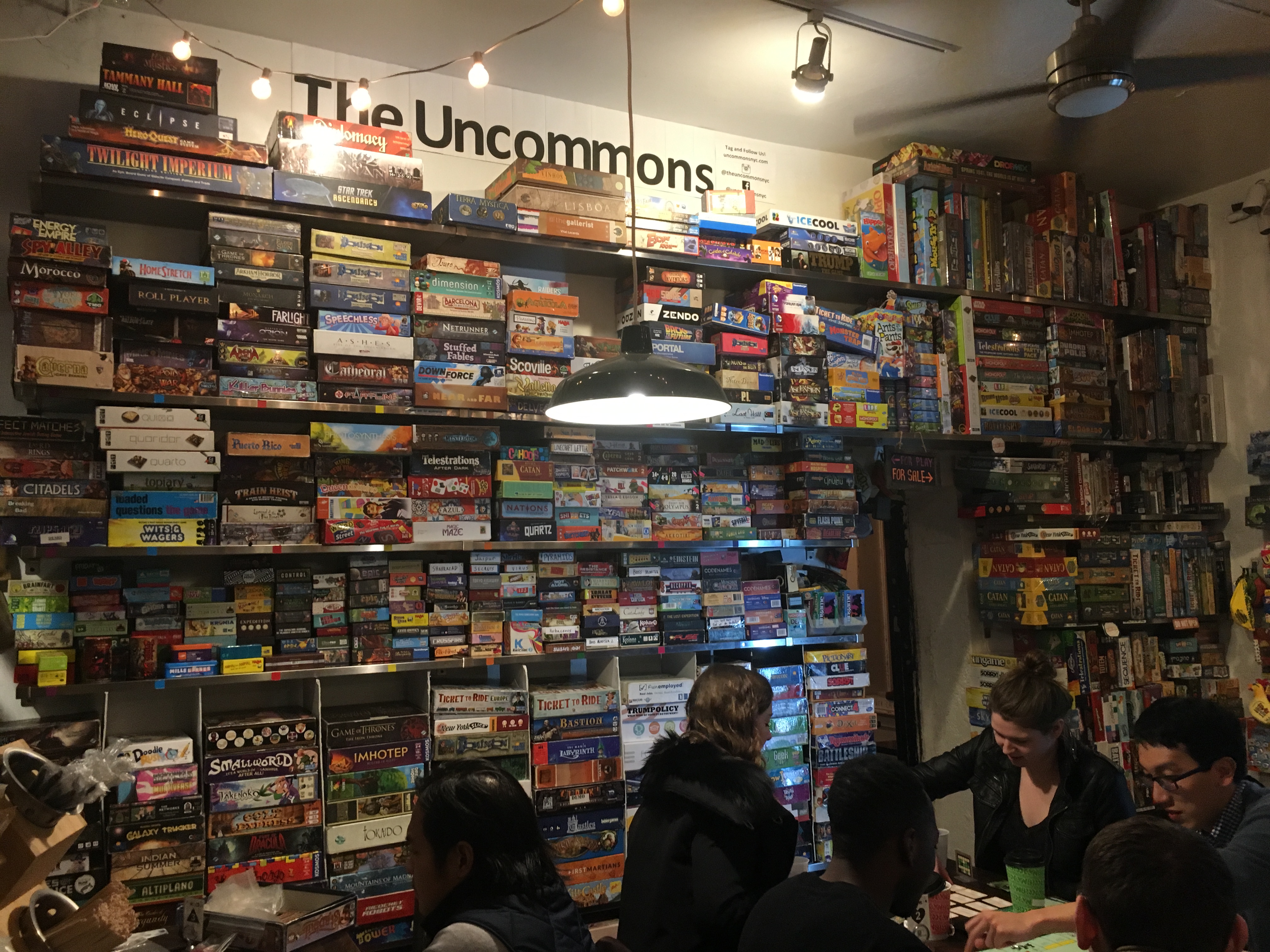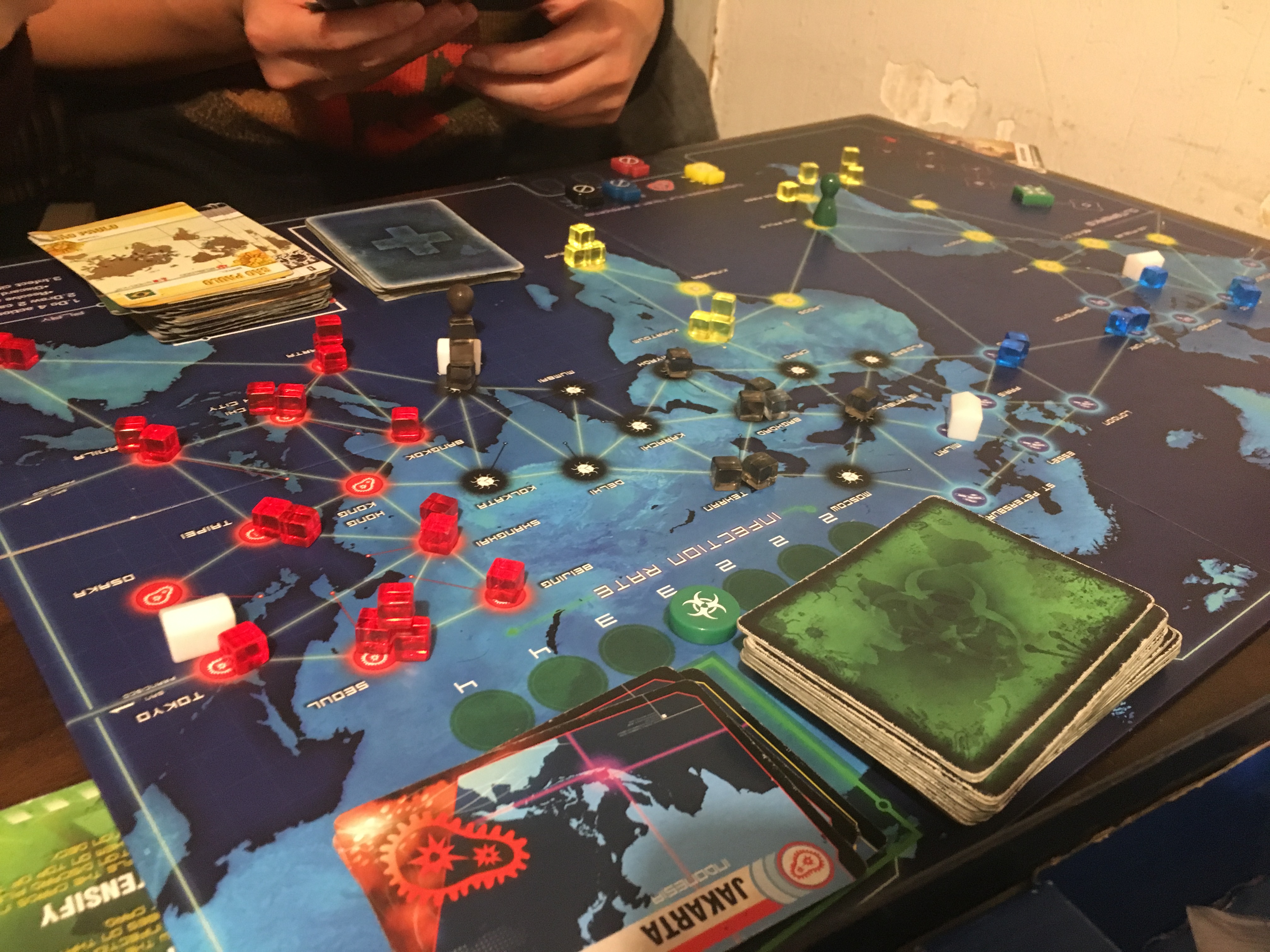At one table, a couple tries to stop a global multi-disease pandemic from destroying the human race. At another, three friends compete to build the most appetizing plate of sushi. At another, a small group plays tries their hands at becoming railroad tycoons. Through a cramped alcove, a table of eight players all vie to land a dream job.
This is The Uncommons, New York’s first board game café.

The store, nestled on 230 Thompson Street between Padma Tibetan Handicrafts Inc. and an apartment with a faded green door, quite literally has wall-to-wall games. Simple wooden shelves hold stacks upon stacks of boxes of plastic tokens, cardboard tchotchkes, and flimsy paper rulebooks. Like most Saturdays, the small space that was once the famous Village Chess Shop is packed. The waiting time for a table is around two hours.
“I found it overwhelming at first, because there’s a lot of stuff,” said Stephen G. Tabor, an actor, when asked what the environment was like. “But I think it’s a really cool concept now that I feel settled.”
“[The Uncommons] kinda forces you to actually look at a person in the face and talk to them with your own mouth, versus texting or that kind of thing,” said Hannah Jennings, one of the store’s employees. “It’s a more intimate kind of way to still be social, without having that kind of barrier.”
For Greg May, owner of The Uncommons, those two-hour wait times are proof positive that his gamble paid off.
“The first time you hit a waitlist you’re like ‘ah, great, this is successful’” said May. “And then the second time you’re a little worried, and the third time you’re still kind of worried. And then you get a little used to it, and then you start to wonder if it’s ever going to go away, whether it’s just a flash in the pan, the next cronut.”
“But after a couple of years of every Saturday and Sunday, every Friday having waitlists you’re like ‘Okay. I guess it’s a thing.’”
The Uncommons’ ability to fill tables doesn’t just come from the store’s long hours – the store opens at 8:30 AM and closes at or after midnight six out of seven days each week – or the craft beer selection. May is quick to point out that The Uncommons is not the first of its kind.
“I give credit to those who came before – I visited Snakes and Lattes and saw its success, and knew that it could be possible in sort of a metropolitan area with an up-to-date, modern feel and look,” said May. “I had also visited similar ideas and concepts in Asia, where there are lots of cafes that charge by the hour for things like karaoke, for internet gaming.”

It also doesn’t hurt that people are playing more now than ever. The board gaming market, has exploded in recent years, with global sales reaching $9.6 billion in 2016. Much of this growth has been attributed to crowdfunding platforms like Kickstarter removing traditional barriers to publishing – the highest funded game on Kickstarter raised well over $12 million. At the same time, French game publisher Asmodée has been on a mergers & acquisitions blitz in recent years, gobbling up dozens of super-popular titles, including Settlers of Catan. There exists a small cottage industry whose sole focus is semi-popular online personalities playing board games together.
“We get to ride that wave, which is great,” said May. “We help push that wave; we help raise that bar as well.”
Still, he continued, the purpose of The Uncommons is to bring people together.
“The games themselves, the tables and chairs, the coffee and the beer – what they really are is a system for getting people into a community, and to give those communities a home.”
